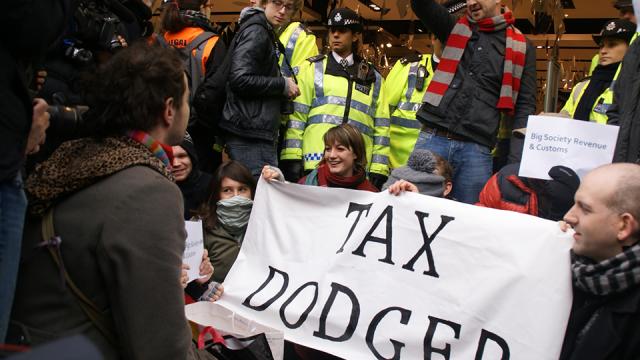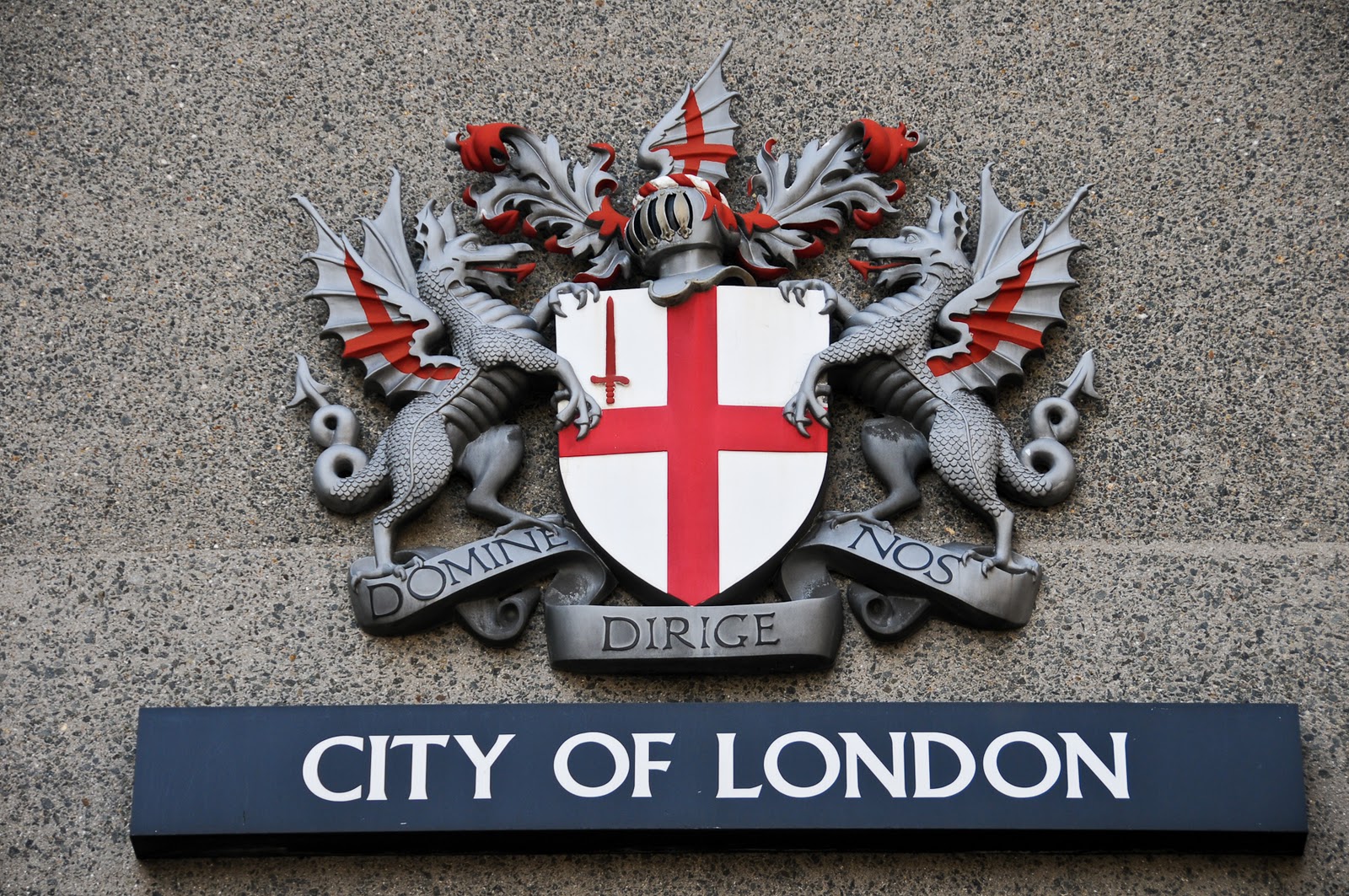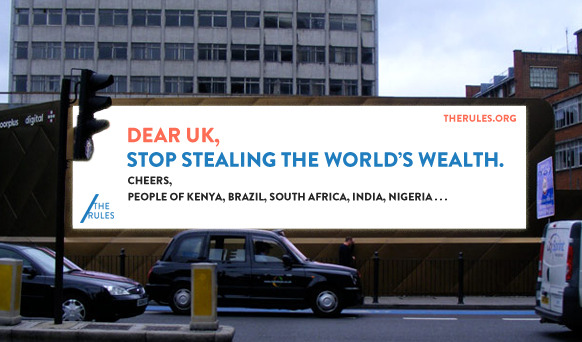
Secrecy is crucial for tax havens and corporate tax evasion. Without it fraud can be prosecuted, money laundering revealed, corruption calculated and justice applied.
The City of London’s secrecy is entrenched like medieval walls, protecting the wealth of its barons. Information about how corporations dominate government and public bodies, normally veiled, has been seeping out in a stream of data leaks. This threatens not only those corporations trying to avoid paying their dues in Britain; it may also undermine the City, which is coined the “world’s tax haven capital.” Research shows that it is the fifth most secret of all the tax havens.
London’s citadel is more than a sealed financial fortress. U.K. campaigning group Tax Justice Network reports that over half of global tax evasion streams through it. In 2010, global tax evasion amounted to $21 trillion, reported by the BBC. In context, that is one third of all the money in circulation, according to the World Bank’s annual auditing. If this city’s secret walls are breaching, apart from the shamefully rich who exploit it, this amounts to an opportunity of monumental gain for humanity at large.
UK UNCUT Legal Action is an anti tax avoidance campaign group, fighting on behalf of public services. They brought Her Majesty’s Revenue and Customs (HMRC) to court on May 2, charging the U.K. tax collectors with breaching their responsibilities for allowing Goldman Sachs to evade £20 million in tax. This case and interrelated leaks reveal how corporations get away with it -- and explains the power relationship that enables this dominance.
The case is centered on one handshake, a “sweetheart deal,” shook on the 19th of November, 2010, between HMRC’S then permanent secretary David Harnett and Goldman Sachs, it was one of many such deals in which corporations negotiated to avoid paying billions of pounds. Goldman had been taken to court in 2005, along with other companies, by the HMRC. They were all found guilty of using a tax evasion scheme to avoid national insurance. The other companies have since paid up, including the interest. In contrast, five years later the HMRC was still trying to get the money from Goldman, plus the interest that it was duty bound to collect. They had evaded £100 million, plus £20 million in interest.
After the sweetheart deal, Dave Harnett met with HMRC’s legal counsel who should have been present at the deal. They said the deal should not stand. Another panel of overseers within the HMRC also asserted the deal was illegitimate because it went against rules set out by Parliament. Nevertheless, Harnett overruled their concerns. In an email read in court, he claimed reopening the case would cause “major embarrassment” to the HMRC and British Chancellor George Osborne.
Embarrassment was a key aspect picked up by the British mainstream media; they collectively projected HMRC’s excuse that this was a human error mistake, compounded by a being bound on Harnett’s word. Yet a scrutiny of the court papers reveals the powerful position of Goldman Sachs to shape the tax rules. A contrasting case is that of a 49-year old plumber caught evading £50,000 in tax over 5 years. Last summer, he was sentenced to spend 12 months in jail, his property confiscated.
Goldman Sachs successfully evaded 400 times more tax. Yet rather than being taken to court and charged they were let off, even after being told to pay in court. The settlement was reached in a meeting that happened in the investment bank’s office. Harnett recalls by email how it was down to Steve Bunsen, head of global tax for Goldman Sachs, who “suggested” the deal. Beyond setting their own tax, it seems the investment bank intimidated HMRC so much that they did not want to insist on the interest.
In a meeting after the sweetheart deal, the tax collectors suggested they found it hard to approach Goldman as the bank had already responded “aggressively” to this potential course of action. Without condoning the plumber’s petty tax evasion, it is reasonable to assume that any aggression on his part would have caused a harsher punishment.
But the Goldman Sachs deal, which cost the U.K. the equivalent of 644 nurses’ annual salaries, wasn't unique. Recently, the Guardian revealed it was common for corporations to avoid £1 billion through such deals. This information was based on leaked emails – again from Dave Harnett while still at the HMRC – sent to the Government’s Treasury.
The trial offered a rare insight into the power of corporations to set their own tax. The proceedings in court also highlighted the counterintuitive system we have in Britain to collect taxes. Not least because in the dock there were HMRC lawyers, paid for by taxpayers, standing up for and public body duty bound to collect taxes, yet arguing on behalf of tax evaders.
Late last year, Starbucks also came under pressure for their sweetheart deal with HMRC. In reaction UK UNCUT – a group whose name inspired the legal group’s name – targeted Starbucks branches in a day of occupations. Across Britain activists turned cafes into crèches, libraries and other public services. All these have been cut on the basis of UK’s deficit, which is estimated to suffer from £70 billion of annual corporate tax evasion.
The revolving door between the City of London, Britain’s government and the public bodies such as HMRC also greatly explains how tax evasion is so rife. David Harnett, the key link in many of these deals has since been appointed senior adviser for the bailed-out HSBC bank, a decision authorized by PM David Cameron. The very same bank is accused of funneling money away from public healthcare into tax havens, whilst fined for large scale money laundering with Mexican drug cartels, terrorists and repressive regimes. During these criminal practices HSBC was run by Mr Green. He was rewarded, rather than sanctioned: the government made him a Lord and Britain’s Trade Minister.
EDFoff have also recently cracked away at the City’s wall secrecy. This campaign group, which focuses on assisting people moving to ethical energy suppliers, revealed information on another HMRC appointment. Volker Beckers was the head of a tax avoiding energy company RWE npower and has become a director at the HMRC.
The revolving door is perhaps spinning fastest for accountants for the big four firms: Deloitte, Ernst & Young, KPMG and PricewaterhouseCoopers. Their business focuses heavily in creative tax evasion. A Parliamentary committee defines one frequent problem as “poacher turns gamekeeper turns poacher.” This describes how accountants are summoned from the big four firms to the Treasury, including Robert Edwards. He helped shape tax rules, and like many others has returned to the accountancy firms – in his case KPMG – to sell his inside knowledge of how to use the loopholes.
These amassing data leaks within Britain compliment international revelations. Last month the International Consortium of Investigative Journalists published bank account details of tax haven users, including 4,000 Americans. The story was picked up by the New York Times, which quoted Tax Justice Network’s Richard Murphy explaining that this will deter tax haven usage: “Whether you are a criminal laundering money or just someone trying to evade or avoid taxes... Once secrecy is gone it creates an enormous fear factor.”
In parallel with UK UNCUT activists and legal group, there is also a new economic justice platform, called /The Rules, targeting the City of London’s walls of secrecy. Its focus on economic inequality relates greatly to Occupy’s critique. The Rules are defining London as the “world’s tax haven capital.” Their campaign focuses firstly on it lifting its veil of secrecy. They are advocating for the city to be subject to freedom of information requests, especially in the run up to the G8 to be held in Britain this year.
Leaked information, legal actions and activism is creating pressure on London’s secrecy. The more we know, the less they will be able to get away with, both nationally and internationally. In terms of what we do know, about the one handshake that cost Britain £20 million in tax to Goldman Sachs – the judge has retired and the verdict is being considered. Whatever the outcome though, medieval walls cannot stand up forever.
3 WAYS TO SHOW YOUR SUPPORT
- Log in to post comments















